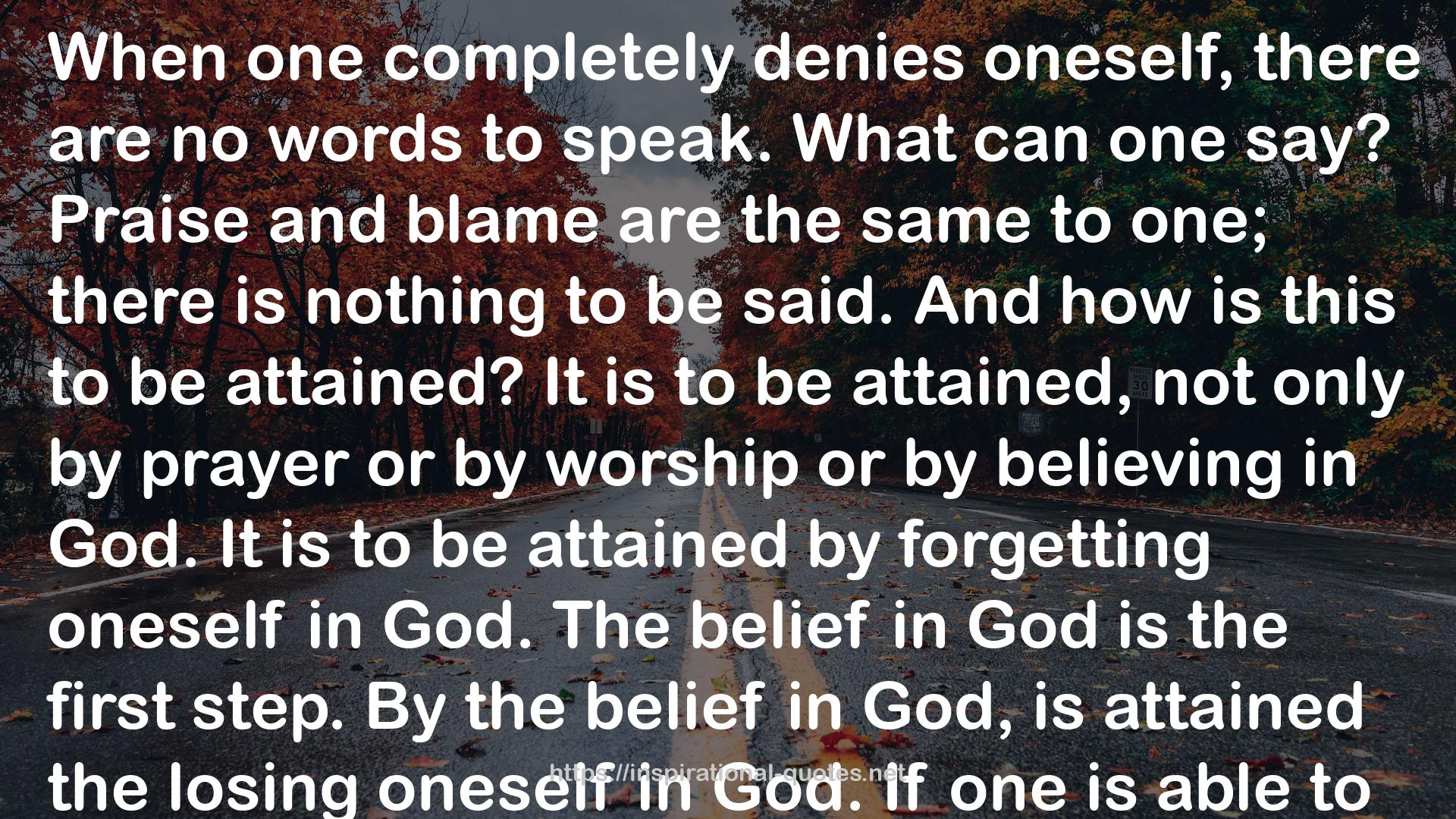" When one completely denies oneself, there are no words to speak. What can one say? Praise and blame are the same to one; there is nothing to be said. And how is this to be attained? It is to be attained, not only by prayer or by worship or by believing in God. It is to be attained by forgetting oneself in God. The belief in God is the first step. By the belief in God, is attained the losing oneself in God. If one is able to do it, one has attained a power which is beyond human comprehension. The process of attaining this is called Fana by the Sufis. Fana is not necessarily a destruction in God. Fana results in what may be called a resurrection in God, which is symbolized by the picture of Christ. The Christ on the cross is narrative of Fana; it means 'I am not.' And the idea of resurrection explains the next stage, which is Baqa, which means 'Thou art.' and this means rising towards All-might. The divine spirit is to be recognized in that rising towards All-might. Fana is not attained by torturing oneself, by tormenting oneself, by giving oneself a great many troubles, as many ascetics do. For even after torturing themselves, they will not come to that realization if they were not meant to. It is by denying one's little self, the false self, which covers one's real self, in which the essence of divine Being is to be found. "
― Hazrat Inayat Khan , The Way of Illumination (The Sufi Teachings of Hazrat Inayat Khan Book 1)
